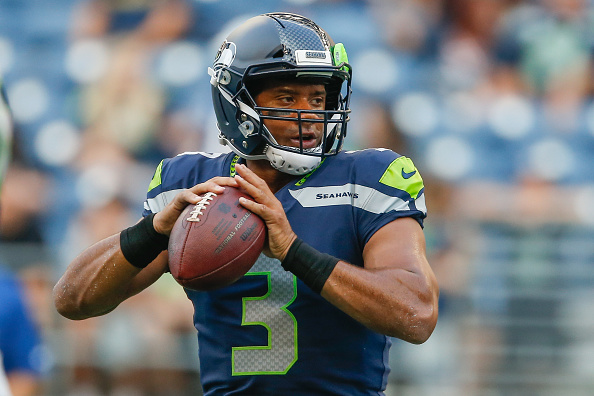There are many different approaches you can take when building your Daily Fantasy Sports (DFS) lineups each and every week. Each week things change. Match-ups, prices, weather, and roles on teams all change. Despite all these changes, there are specific principles we should follow.
Who’s Playing Who?
Obvious, right? But you’d be surprised how many times that is ignored due to a player you like or that had a big game the prior week. Knowing when certain teams and players are squaring off with weaker opponents is something we want to attack. We will know early on who the weaker teams are going to be and which teams will be the alpha, at least from an offensive perspective.
Viva Las Vegas
After we figure out who’s playing who, we should head over to the Fantasy Alarm Vegas Odds tool. Over/unders for every game matter because it gives us an idea on which offenses we are expecting to put up the most points, which teams are not, which games are expected to be blowouts, and which are expected to be low scoring. We’re not looking to target teams with low totals in cash games due to the unexpected offensive output from said team.
Stacking
Without giving away all of “MJ’s Secret Stuff” with the stacking in DFS article coming later this week, this is a popular approach primarily in GPPs, but sometimes in cash. The most obvious members of a stack are a QB and WR1. But going with a full stack where you include a RB and possibly a TE works as well. Those three-to-four player stacks come full circle when you’re talking about Vegas totals, because the higher the implied total for a team, the more players you’ll add to your potential stack.
Volume + Value 
On a week-to-week basis, you’re going to find certain match-ups to be ideal for running backs due to defensive deficiencies. Those teams that have the plus match-up could potentially have a cheap back that is going to see double-digit touches between runs and catching passes and identifying those players are crucial for the rest of our lineup construction.
Using the Fantasy Alarm Projections page is a great start to see who the players that fall under this specific category will be. Once you do that, keep an eye on injuries throughout the week. An RB1 you liked could suffer an injury during practice which could open up even more Sunday value and that gets us both volume and value.
Spend Down at Specific Positions
We want to spend on an elite running back and wide receiver generally every week, which means there are specific positions we want to save money at. There are situations in which we’re going to spend on an elite QB or TE, but more often than not, those are two positions we can conserve our budget on. Using a cheap kicker and defense is also obviously the approach and is another way to conserve.
Flex Positions
In your lineup, there is basically a utility spot called your “FLEX”. You can use any skill position player in this slot, but we have to approach this specific position with a lot of strategy. If you’re playing main slate, which generally include the one and four PM games, you should use your FLEX to roster a guy on the later slate, considering you may have to change your lineups due to injured players being ruled out. It’s not ironic it’s called a FLEX position...be flexible!
Site-to-Site Differences
If you’re someone who plays on multiple DFS platforms, be aware of the differences each site possesses. DraftKings is a full-point PPR format while FanDuel is half-point PPR. You’re given $50,000 over on DraftKings and an extra $10K over on FD for the same amount of roster spots. DK gives us a lot of bonuses when going over a certain amount of yards for wide outs and running backs and FD does not.
Cash & GPP
If you’re just getting into DFS, you’re going to hear the word “chalk” more than you did when you were an eight-year-old on the playground. That comes into play very often when it comes to teams squaring off with bad defenses. The “Chalky” plays are the guys that will be highly-owned and likely used more in cash games. The chalky plays will also be used in GPPs, but looking to differentiate on lower-owned players and team stacks could be route you take to take down a tournament.
Weather
It’s not the first thing we think of when we start diving into slates, but it’s extremely important to know if there is bad weather on the horizon. Considering the months the NFL season takes place in, snow is very possible. The heavier the snow, the harder it is to throw the ball, which could lead to more rushing attempts. The heavier the rain and stronger the winds, the worse it is for quarterbacks. There are also teams that play in domes and some teams that play in cities that stay warm year-round. All stuff that comes into play

